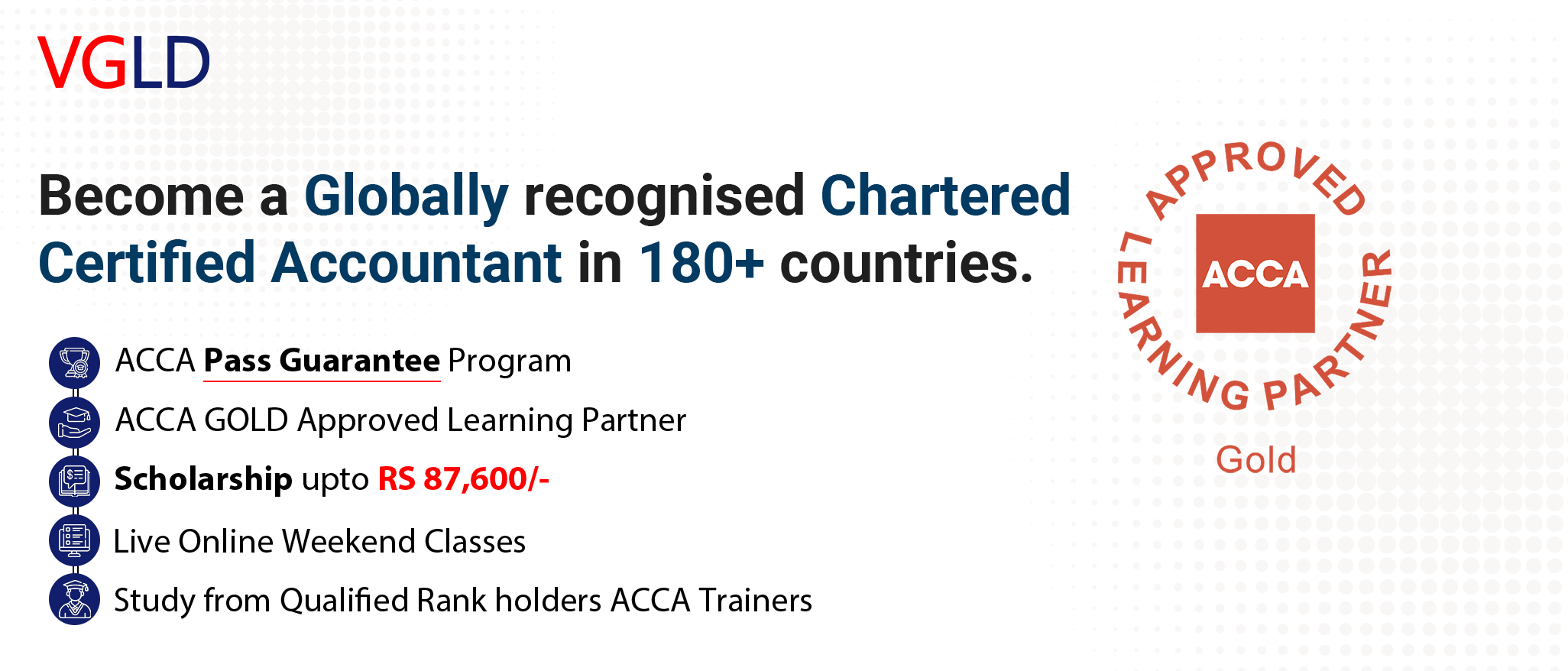BLOG- Career Choice after 12th Commerce

With the CBSE just announced the Class 12th results, a lot of students like you with Commerce background are looking for Career Guidance for Courses after 12th Commerce stream.
I myself did my 12th in Commerce and can very well relate to your present uncertainty and ambiguity in mind.
Everywhere you must be heading, you would be asked the same question, “So what next….?”
Some students are very clear of what they want to pursue as a Career choice- by the grace of God they have been able to secure the marks for it too and are kind of sorted.
But, where the majority of the students lie is with ambiguity about what they should choose after Class 12th and what options are actually available based on their marks in Class 12!!!!

I’m writing this article to help students like you to be able to make the right career choice…
“AMBITION is the first step to success, second is ACTION!!!”
So, as a Commerce student, you need to evaluate what is your ambition, what excites you as a person, where do you see yourself in 10 years from now?
Choose your AMBITION wisely, then take ACTION to materialise your ambition!
It’s a well-known fact that if we choose a career that matches our aptitude and our ability, we have already taken the first right step!
So how to make the right choice?
How to find out what excites you?
The best way to do so is to do a lot of HOMEWORK- do a good amount of research and then decide where to head!!!
Just to help you, I have collated a few career options that you can look into!
Best Career Options After 12th Commerce
1.B.Com ( Bachelor of Commerce)
Most Commerce students want to pursue this course simply because of the high value this qualification holds when done from a reputed University/college.
Under BCom, there are three most popular courses, namely BCom or BCom-General, BCom (Honours) and BCom LLB. The BCom or BCom-General is also referred to as BCom-Pass by many universities.
In the BCom course, candidates are taught core subjects related to commerce and finance. In the three-year duration, the candidates are given options to choose from a few elective subjects too. The programme is usually spread over six semesters during which the student is taught topics like financial accounting, corporate tax, economics, company law, auditing, business management, etc. The course also opens up the avenue to go in for further higher courses like M.B.A( Master of Business Administration) and/or other Vocational courses.
Many Universities offer this course and getting an entry depends on you being shortlisted by the college. It is generally a 3 year program.
2.B.B.A (Bachelor of Business Administration)
It is a 3 years long Degree course offered by many Private colleges.
BBA can be pursued in full-time as well as correspondence mode. There are various BBA specialisations one can choose from like Human Resource Management, Finance, Sales & Marketing and Information Technology.
The worth of the Qualification again depends upon from where the course has been done. Post completion, one may also follow it up with an M.B.A. (Master of Business Administration) Degree too!
3.B.M.S.( Bachelor of Management Science)
It is a 3 year long degree course involving an advanced study of the management practices used in business/corporate firms, as also basic concepts in human resource education, such as employee retention, labor relations, and similar problem solving.
The program is spread over 6 semesters, lasting over 6 months each, and as for minimum eligibility, aspiring candidates need to attain the Higher Secondary (10+2) qualification with a minimum aggregate score of 50%, for applying to the course.
Admission to the course is offered on the basis of the candidate’s performance in a relevant entrance test.
Successful graduates of the course in the country can explore lucrative employment opportunities in leading public and private sector organizations as Bankers, Budget Planners, Quality Specialists.
4.LAW
Traditionally only Graduates were allowed to pursue L.L.B. But, now some colleges are offering a 5 Year Integrated Law course coupled with other Qualifications for Law to be taken up by student’s right after 12th standard.
These Integrated courses are a combination of a Degree course and traditional L.L.B. course. For example- B.Com.& L.L.B./ B.A.& L.L.B. etc.
There are many job opportunities after taking up Law beginning from job in any law firm at or to start up on one’s own private practice, start a consulting firm or even start an own law firm!
5.CHARTERED ACCOUNTANT( C.A)
C.A. stands for Chartered Accountant, one of the most reputed courses in India.
To become a C.A., one has to successfully complete CA Exams along with Internship required under the ICAI (Institute of Chartered Accountants of India).
12th Commerce pass students may start off by applying for CPT (Common Proficiency Test) conducted by ICAI.
Studying involved in becoming C.A. is tough. It does require a lot of perseverance from the student. But at the same time, the career prospects are plenty!
After becoming a C.A, job opportunities open up in Finance departments in Private companies as well as Government Enterprises or even start working independently, offering consultation services as well as operating as a private auditor who may be hired by companies and businesses!
6.CMA( Cost Management Accounting)
At present ICWA course has been renamed to CMA which stands for Cost Management Accounting. This course provides you an in-depth knowledge to manage business within the available resources. As a cost accountant, you have to collect and analyze the financial information from all the areas of a company.
This course comprises of three stages, i.e. CMA Foundation, CMA Intermediate and CMA Final. You can pursue this course through correspondence or through online from an accredited university.
7.C.S. (COMPANY SECRETARY) COURSE
For Statutory Compliance, a company secretary is needed! And to become a C.S., one has to appear for Company Secretary Course run by ICSI (Institute of Company Secretaries of India) The ICSI provides training and education to lakhs of aspiring Company Secretaries.
In case of 12th Commerce passed students, to get selected for the C.S. course offered by ICSI, they must go through a 3 stage program. The three programs are-
Foundation Program
Executive Program
Professional Program
Talking about job opportunities, without any doubt, private sector provides plethora of job opportunities under Compliance department.
INTERNATIONAL QUALIFICATIONS
With the present GLOBAL opportunities available to students, it would be incomplete if I don’t talk about International Qualifications which are now available in India !!!
1. CPA US (Certified Public Accountants)
Just like Chartered Accountants (CA’s) are granted a license to practice the profession of Accountancy & Taxation in India, similarly Certified Public Accountants (CPA) are granted the license to practice in the US. In some countries, these qualified accountants are called Chartered Accountants (CA’s) and in some countries these are called Certified Public Accountants.
This Accounting qualification is called Certified Public Accountant in the US and to become a CPA, a Candidate is required to fulfil the 3E’s i.e.
1.Education
2.Examination
3.Experience
To become a Certified Public Accountant, a candidate has to successfully clear all the exams conducted by the American Institute of Certified Public Accountants (AICPA). This is a uniform exam conducted by the AICPA and is the same across all the 55 states in the US.
However, the eligibility requirement and the experience required to become a Certified Public Accountant varies from state to state and different states have mandated different eligibility requirements as determined by their respective state boards of accountant and is only valid in US.
VGLD offers complete game plan assistance for the benefit of the candidates to assist them not just in preparation but also other aspects related to the US CPA program.
2. CPA Canada
Similar to the states in the US, Canada has provinces, and each province has its own regional accounting body. Canada has taken a bold move by merging its accounting qualifications (CA, CMA and CGA) into one big “CPA “designation. The process has been completed with much success.
In order to get started, candidates should follow the rules applicable to their status.
Prerequisite for CPA PEP( Professional Education Program)
- Complete a bachelor degree in relevant concentration, e.g. B.Comm with an accounting major
- Complete the prerequisite learning defined in The CPA Competency Map
- Complete at least 120 credit hours or equivalent of education
However, like CPA US, CPA Canada is also Province wise and is valid only in Canada !!!
3.CIMA(Chartered Institute of Management Accountants)
Just like CMA in India, CIMA is an International professional body of management accountants based in UK.
CIMA is a management accounting qualification which focuses more on costing, finance accounting, and strategic business skills it is an international qualification in many countries.
CIMA focuses on the overall success which includes Corporate Strategy, financial management, organizational management, etc.
However, CIMA can be an add on and might help if you are working with a British company in area of Accounting or Controlling. Otherwise investing time in CIMA first without pursuing any Indian Qualifications will not help much.
4.ACCA (ASSOCIATION OF CHARTERED CERTIFIED ACCOUNTANTS)
ACCA (Association of Chartered Certified Accountants) is a UK Based Accountancy body which is recognised in 181 countries.
It is the global body for Professional Accountants.
In layman’s language, it is called a GLOBAL CA!
It boasts of a Global Reputation which is more than 100 years old and spread across 181 countries across the globe with over 7,110 approved employers across the globe.
What’s particularly interesting about the qualification is that it gives the students complete flexibility.
The first 4 papers are On –Demand CBEs which means the students can appear for these exams anytime they are prepared for the same by just booking at a licensed CBE Centre for the same.
The next 5 papers are Session CBE’s , happening 4 times a year with complete flexibility to choose from between 1 paper to a maximum of 4 in a single attempt !
Unlike CA, there is no aggregation, no grouping in ACCA and that’s particularly the reason why it boasts of an overall higher pass percentage.
Students can pursue ACCA after 12th but there is certain prerequisite about 12th qualification which are as follows:
In Accounts or Maths you must have 65% and in English you must have at least 50%.
There are 3 levels in ACCA:
1.Applied Knowledge level
2.Applied Skills level
3.Strategic Professional level
If you don't meet the above criteria don't panic, you can apply to ACCA through FIA Route and for this you must have 60% in maths and English and 50% in other subjects.

What is unique about this Qualification is that it is a very progressive Qualification making students “Job Ready”
Talking about job opportunities, with the Global opportunities that the Qualification provides with big names like KPMG, Deloitte, PWC, EY,GT etc …. It sure is a winner of a Qualification that will give you the wings to fly in both India and abroad!!!
Hope this helps!!!
I wish you good luck in making your career choice after 12th!!!
Remember, “PASSION is the difference between having a career or having a job”!!!
Thanks
Shilpi Jain